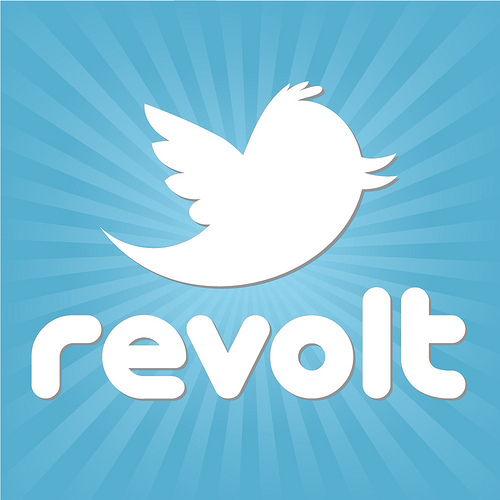Twitter: Expanding Voice and Space for Political Discourse In Highly Restricted Countries?

A recent article in the New York Times argues that Twitter is used by citizens in Saudi Arabia to increase the political space for public discourse that did not exist before: "Open criticism of this country’s royal family, once unheard-of, has become commonplace in recent months. Prominent judges and lawyers issue fierce public broadsides about large-scale government corruption and social neglect. Women deride the clerics who limit their freedoms. Even the king has come under attack. All this dissent is taking place on the same forum: Twitter."
The NY Times staff writer Robert Worth, an often-astute chronicler of the MIddle East, argues that "Unlike other media, Twitter has allowed Saudis to cross social boundaries and address delicate subjects collectively and in real time, via shared subject headings like “Saudi Corruption” and “Political Prisoners,” known in Twitter as hashtags."
Is Twitter becoming "like a parliament, but not the kind of parliament that exists in this region,” as Faisal Abdullah, a 31-year-old lawyer, is quoted in the story - even a "true parliament, where people from all political sides meet and speak freely?"
Or is allowing citizen to express themselves publicly via social media a clever tactic by rulers in highly restricted to allow citizens to let off steam while violently quelling real reforms and street protests? Is Twitter really expanding 'political voice' and 'space' - the ability of citizens to have the capacities and articulate their interests and needs and engage in democratic processes to claim their rights and identify appropriate avenues to address their issue concerns?
In Cuba something similar is happening, as NDI staffers heard recently in a talk by an expert on Cuba's social media. There, internet and mobile access are controlled by the State and still prohibitvely expensive, even as costs have declined somewhat in recent years. Prominent Tweeters there as well - with activists and writers coming mostly out of the Cuban blogosphere - have developed a global following and are using Twitter in ingenious ways to alert external observers when there is repression, request information and establish sources, and even solicit off-island mobile account recharging during crises. In Cuba, being highly visibile on Twitter has increased the ability of activists to receive and send first-hand, real-time information and lowered the regimes ability to deny repression. It has increased the "trackability" of activists and, in an environment where surveillance is everywhere, paradoxically increased the physical safety of prominent activists by being able to quickly mobilize international pressure.
And increasingly, Twitter on the island is used by activists to spark internal debate. In Cuba, in particular, social media conversations on the island, even in a low-bandwidth/computerized environment has had the effect of bypassing the previously all-important exile community and has, as a result, depoliticized dissent by showing the regime that political disagreement is, in fact, homegrown, and not a result of 'foreign' influence. Conversations on Twitter have, in fact, increased more nuanced civil society forms of public expression that are inspiring new alliances, new forms of art and creativity, and a more vibrant public sphere that did not exist before.
In Saudi Arabia, there seems to be similar developments with topics previously taboo being able to be discussed publicly. As Worth writes, "Twitter remains a remarkable vista of areas of Saudi society that had until recently been closed to outsiders. The issue of political prisoners, for instance — a category usually understood here to include both champions of a constitutional monarchy and Islamists who oppose the government on religious grounds — draws a broad band of sympathy."
In Cuba and Saudi Arabia alike, the regimes do not sit idly by even as Twitter is tolerated. In Saudi Arabia, according to Worth, the "Interior Ministry officials prowl the Twittersphere, always under false names, chastising government critics and issuing brittle avowals of loyalty to king and country. There have also been a few ham-handed efforts to control the criticism, including a royal decree issued in July barring Saudi judges from writing on Twitter."
In Cuba, there is also an army of official bloggers and tweeters who demonize, online and off, prominent activists. Cuba has also developed its own internal social media platform, RedSocial, which looks like Facebook (but has apparently failed to inspire a strong following on the island). High-speed internet is still not available, despite the much-lauded arrival of an underwater pipeline from Venezuela eighteen months ago, and the mobile network continues to be surveilled and tightly controlled. Meanwhile, the regime continues to respond violently to peaceful dissent; Cuban activists face short term detentions, harassment, threats, and physical violence. For the first time, though, activists can also chronicle these reprisals publicly and in real time through texting Tweets.
But what is also evident is that public officials take note. In Cuba, Yoani Sanchez, one of the most prominent bloggers and activists, engaged in a public row with Mariela Castro, Raul Castro's daughter. In Saudi Arabia, Worth quotes a lawyer" “This is increasing the culture of rights here,” Mr. Abdullah said. “And it matters. Yesterday, I wrote a tweet about the court system, accusing the judges of arrogance. The judiciary minister himself called me to talk about it. So you see, they read it.”
Flickr image courtesy of People's Open Graphics, Creative Commons.
